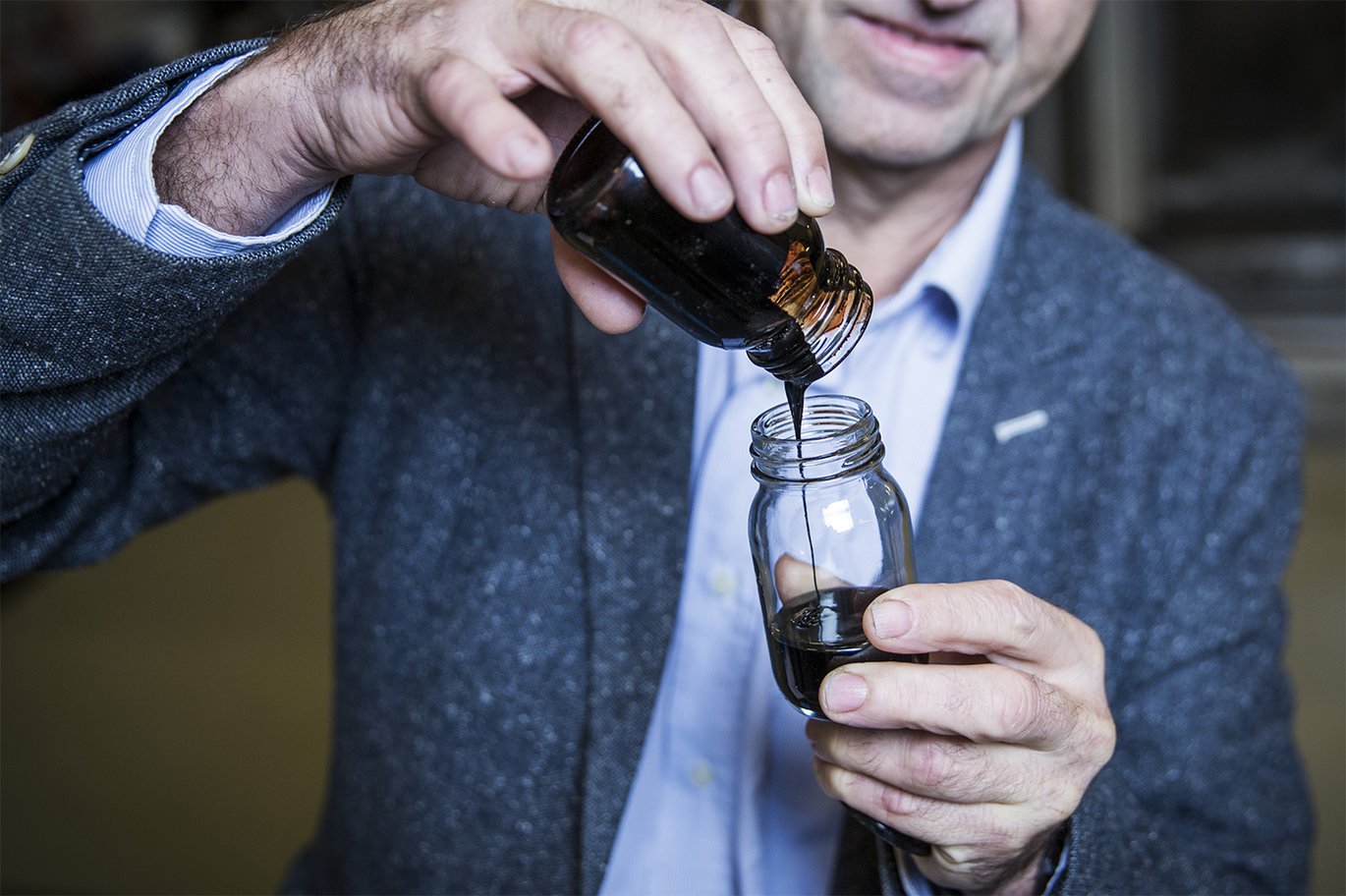Fossil-free fuel from biomass and green hydrogen
Researchers from Aarhus University are heading a new, international project to develop a process that enables the production of biofuels based on plant and wood residues for air traffic and heavy transport. The technology can be up and running and producing drop-in biofuels by 2030.

Ready-to-go fuels as we know them, but made entirely without the use of fossil resources. This is the goal of the research project HyProFuel, which is led by researchers from Aarhus University and which is supported by the Innovation Fund with DKK 26.7 million. kr.
While the electrification of cars and urban infrastructure is happening at impressive speeds, it is otherwise problematic with sustainable solutions for air traffic and heavy transport. The solution may be fuels based on well-known but CO2-neutral hydrocarbons in the form of pyrolysis oil made from organic residues from agriculture and forestry.
”The potential for using pyrolysis oil is huge worldwide, as many types of locally produced organic waste can be used. Many pieces are in place to be able to produce fuel from pyrolysis oil on a large scale, and the Danish Parliament has already allocated resources to the development of pyrolysis technology in Denmark,” says Jostein Gabrielsen, R&D Director at Haldor Topsøe, which is one of the project's total of eight partners.
He continues:
“But we lack an efficient process that can convert the crude pyrolysis oil into a fuel that can be used in a modern engine.”
This is where the HyProFuel project comes into play. Pyrolysis oil is a brownish liquid that is reminiscent of the crude oil we make fuel from today. However, pyrolysis oil is more difficult to treat and the content of impurities, especially oxygen, is a problem for further use. The HyProFuel project aims to develop a catalytic reactor to solve this problem.
“For many years, the project partners have successfully worked with similar technology to purify oils of polluting sulfur and nitrogen. At the same time, there is already a commercial technology at Alfa Laval Copenhagen and Haldor Topsøe that can convert simpler vegetable oils into fuel. This is the know-how we bring into play here together with new knowledge about catalytic materials and the composition of the pyrolysis oil, ”says Professor Jeppe Vang Lauritsen at the Interdisciplinary Nanoscience Center, who is leading the project from Aarhus University.
The pyrolysis oil also contains impurities other than oxygen, such as metals. In the HyProFuel project, these impurities must be removed by a special filtration process called pretreatment.
”To that end, we will develop new nano- and biomaterials that can remove metal ions from the pyrolysis oil. This is an important step before the catalysis, as the metal ions will otherwise poison the catalysts and deteriorate the process,” says Professor Zheng Guo from the Department of Biological and Chemical Engineering, who, together with the company Alfa Laval Copenhagen, will work with bio-oil treatment in the project.
The goal is also to be able to integrate the process with existing oil refineries, which can thus in the long run restructure their production. At the same time, considerable amounts of hydrogen are used, which are stored in the hydrocarbons, and the process can thus also function as an efficient buyer of green hydrogen.
"If the development is successful, it is realistic to see the first production of fuel from pyrolysis oil by 2030," says Jostein Gabrielsen.
The project is a collaboration between Aarhus University, the Technical University of Denmark, University of Copenhagen, Haldor Topsøe A/S, Alfa Laval Copenhagen A/S, Equinor ASA, Kalundborg Raffinaderi and the Dutch pyrolysis company BTG Bioliquids.
The projet has a total budget of 42.2 MDKK and runs for four years.
Contact
Jeppe Vang Lauritsen
Professor, Interdisciplinary Nanoscience Center, Aarhus University
Tel.: +4523382369
Mail: jvang@inano.au.dk
Zheng Guo
Professor, Department of Biological and Chemical Engineering, Aarhus University
Tel.: +4520886597
Mail: guo@bce.au.dk
Jostein Gabrielsen
R&D Director, Clean & Renewable Fuels, Haldor Topsøe A/S
Tel.: +4541464505
Mail: joga@topsoe.com
Bent Sarup
Vice President, Oil Processing Systems, Alfa Laval Copenhagen A/S
Tel.: +4528786654
Mail: bent.sarup@alfalaval.com
